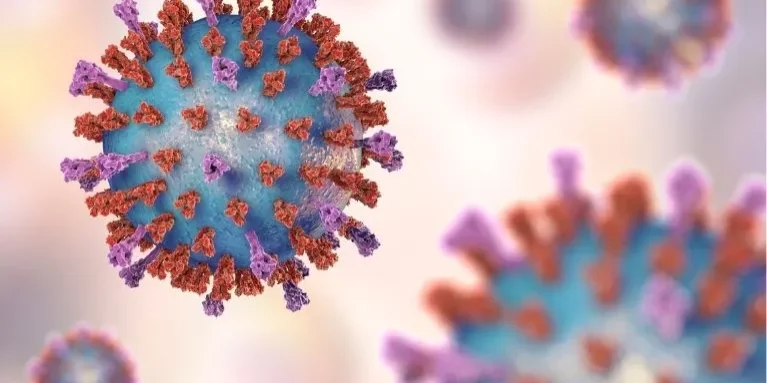
What Is Respiratory Syncytial Virus (RSV)?
Respiratory syncytial (sin-SISH-uhl) virus (RSV) is a common respiratory virus that infects the nose, throat, lungs, and breathing passages. RSV spreads through contact with respiratory droplets (coughing, sneezing, or kissing) from an infected person or touching surfaces contaminated with the virus and then touching your eyes, nose, or mouth. RSV can survive for many hours on hard surfaces such as tables and crib rails. The virus typically lives on soft surfaces such as tissues and hands for shorter amounts of time. Children are often exposed to RSV outside the home, in school or daycare centers. They can then transmit the virus to other members of the family.
RSV is so common that almost all children will have had an RSV infection by their 2nd birthday. RSV can be serious and can lead to severe illness among both children and certain adults. While certain groups including premature and very young infants (≤6 months), individuals with chronic heart or lung disease, immunocompromised individuals, and adults age 60 years and older, are at increased risk for severe disease, the potential for dangerous complications is a concern for all age groups. In fact, 80% of children younger than age 2 years who are hospitalized for an RSV illness do not have risk factors.
Burden
Even though it is often associated with mild, cold-like symptoms, RSV can be serious for infants, toddlers, and adults age 60 years and older, and it can lead to severe illness and hospitalization. In the US, RSV is the most common cause of bronchiolitis (inflammation of the small airways in the lung) and pneumonia in children <1 year, and leads to approximately 2.1 million outpatient visits, 58,000-80,000 hospitalizations, and an estimated 100-300 deaths among children younger than age 5 years annually. The virus is also increasingly recognized as a significant cause of respiratory illness in adults in the US and is estimated to cause 60,000-160,000 hospitalizations, and 6,000-10,000 deaths in adults age 65 years and older annually. The actual burden among all age groups is likely even higher due to underreporting of RSV infections.
Individuals of all ages can get an RSV infection but those at highest risk for severe disease include:
- premature infants and infants age 6 months and younger
- individuals with chronic heart or lung disease
- individuals with compromised immune systems
- older adults
For additional information, read Reducing the Burden of Respiratory Syncytial Virus Across the Lifespan by NFID Medical Spokesperson William Schaffner, MD and the NFID Progress Report: Reducing the Burden of RSV across the Lifespan.
Symptoms
Similar to other respiratory viruses like influenza (flu) or COVID-19, symptoms of RSV infection include runny nose, coughing, sneezing, fever, decreased appetite, and wheezing. In very young infants, the only symptoms may be irritability, decreased activity, and breathing difficulties. Those infected with RSV usually show symptoms within 4 to 6 days after getting infected. Healthy adults infected with RSV may have few symptoms but can still spread virus to others.
Individuals infected with RSV are usually contagious for 3 to 8 days and recovery usually takes 1 to 2 weeks. However, some infants, and those with weakened immune systems, can continue to spread the virus for as long as 4 weeks, even after they stop showing symptoms.
In the US, RSV typically circulates in fall and winter months, along with other seasonal respiratory viruses, like flu. Because the symptoms are similar to those of other respiratory viruses, such as flu and COVID-19, it can be difficult to diagnose RSV without confirmed laboratory testing.
Prevention
The best ways to help prevent the spread of RSV include the following:
- Cover coughs and sneezes
- Wash hands often with soap and water for at least 20 seconds
- Avoid close contact with others who are sick
- Avoid touching the face, particularly eyes, nose, and mouth
- Clean frequently touched surfaces (such as doorknobs)
- Consult a healthcare professional if you have cold-like symptoms that linger or worsen
- Get vaccinated as recommended by a healthcare professional
New vaccines and preventive monoclonal antibodies can help protect babies and adults age 60 years and older against RSV.
Pregnant women and parents should talk with a healthcare professional about how best to protect their infants against serious RSV illness, either with a vaccine given during pregnancy, or a preventive antibody given to the baby after birth.
- RSV vaccine for pregnant women: The Centers for Disease Control and Prevention (CDC) recommends RSV vaccine for pregnant women to help protect babies against severe illness after birth. CDC recommends seasonal administration of 1 dose of RSV vaccine during weeks 32-36 of pregnancy during September through January.
- RSV preventive monoclonal antibody for babies: CDC recommends 1 dose of nirsevimab (a long-acting monoclonal antibody) for all infants younger than age 8 months who are born during or entering their first RSV season (typically October through March). For children between ages 8-19 months who are at increased risk of severe RSV disease, including those who are severely immunocompromised, CDC recommends 1 dose in their second RSV season. Monoclonal antibodies are manufactured proteins that mimic the antibodies that the immune system naturally produces to help fight infections.
- Note: Most infants will only need protection from either the maternal RSV vaccine or nirsevimab, but not both.
- RSV vaccine for adults age 60 years and older: CDC recommends RSV vaccines for adults age 60 years and older based on shared clinical decision-making.
Adults age 60 years and older should talk with a healthcare professional about getting vaccinated against RSV.
Researchers are currently working to develop additional tools to help prevent RSV among specific populations including those who are immunocompromised.
Palivizumab is a long-acting monoclonal antibody which has been used since the late 1990s to prevent severe RSV illness in high-risk infants (born prematurely or with congenital heart disease or chronic lung disease). However, palivizumab use has been limited to certain children at high risk for complications and must be given every month through RSV season. Palivizumab does not help cure or treat children already suffering from serious RSV disease, and cannot prevent RSV infection.
Another monoclonal antibody, palivizumab, which has been used since the late 1990s, is recommended by the American Academy of Pediatrics (AAP) for administration to infants and young children who are at increased risk of severe RSV disease based on gestational age and certain underlying medical conditions. It is given in monthly intramuscular injections during RSV season. AAP has published considerations for the 2023–2024 RSV season with regard to palivizumab versus nirsevimab administration for high-risk infants.
Treatment
There are currently no specific antiviral medications or treatments for RSV disease. The primary treatment for RSV is supportive care and may include oxygen and respiratory care treatments.
Updated January 2024
Sources: American Academy of Pediatricians and Centers for Disease Control and Prevention
Related Resources
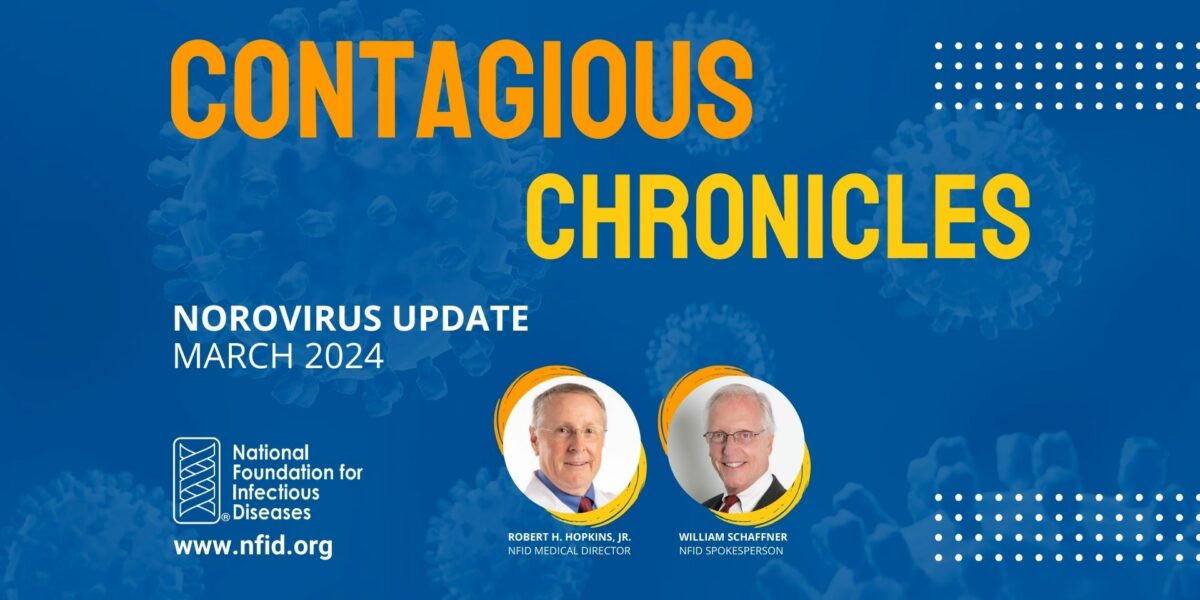
Contagious Chronicles: Don’t Be A Dreaded Spreader
In this episode, NFID experts offer insights on updated recommendations from the Centers for Disease Control and Prevention (CDC) to help prevent the spread of respiratory viruses, including COVID-19, influenza (flu), and respiratory syncytial virus (RSV)
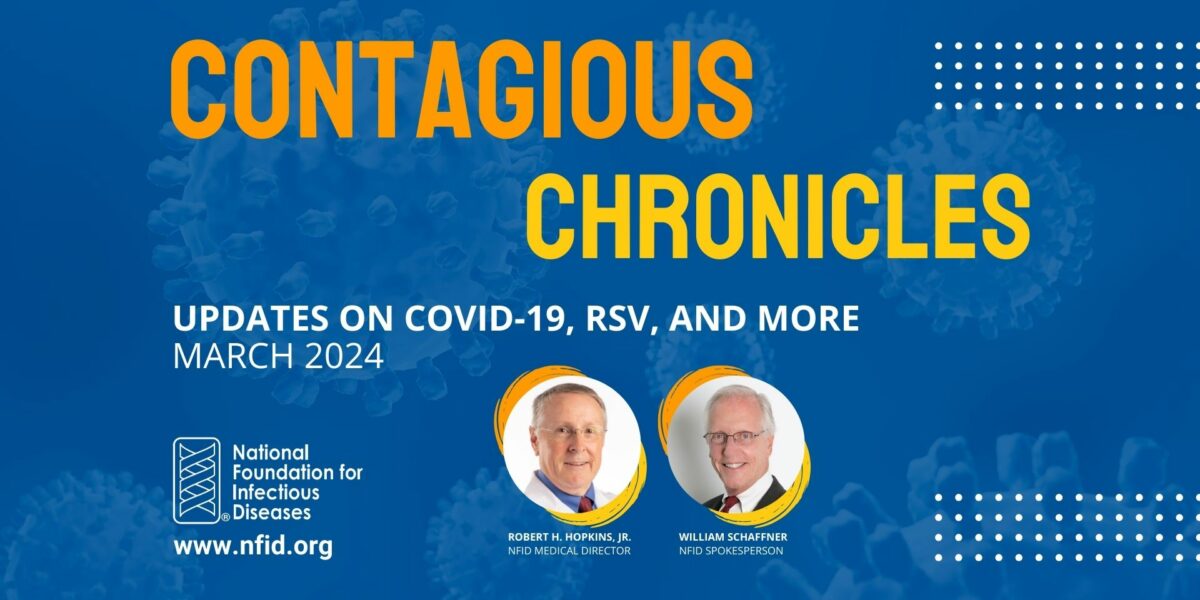
Contagious Chronicles: Updates on COVID-19, RSV, and More
In the inaugural episode, NFID experts discuss new COVID-19 vaccine recommendations for older adults and other updates from the February 2024 meeting of the Advisory Committee on Immunization Practices (ACIP) …
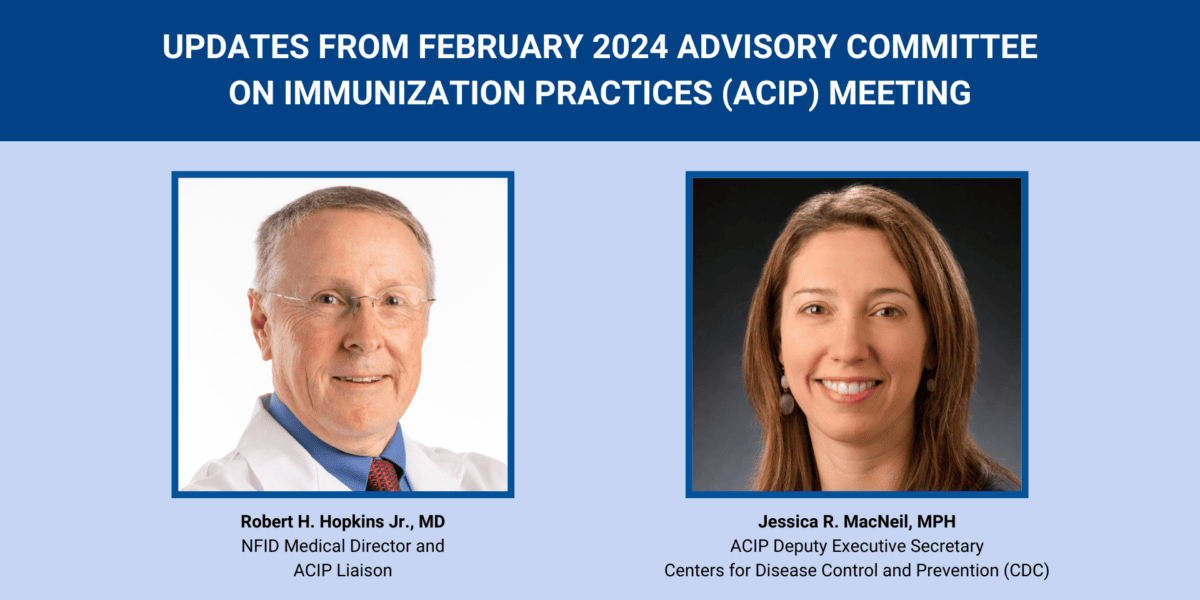
Updates from February 2024 Advisory Committee on Immunization Practices (ACIP) Meeting
Webinar discussion includes an overview of updates from the February 2024 Advisory Committee on Immunization Practices (ACIP) meeting, focused on US vaccination recommendations for children, adolescents, and adults …
Related Posts

5 Reasons Why Vaccines Are Good for Your Heart
For people with heart disease, getting vaccinated is as important to staying healthy as diet and exercise
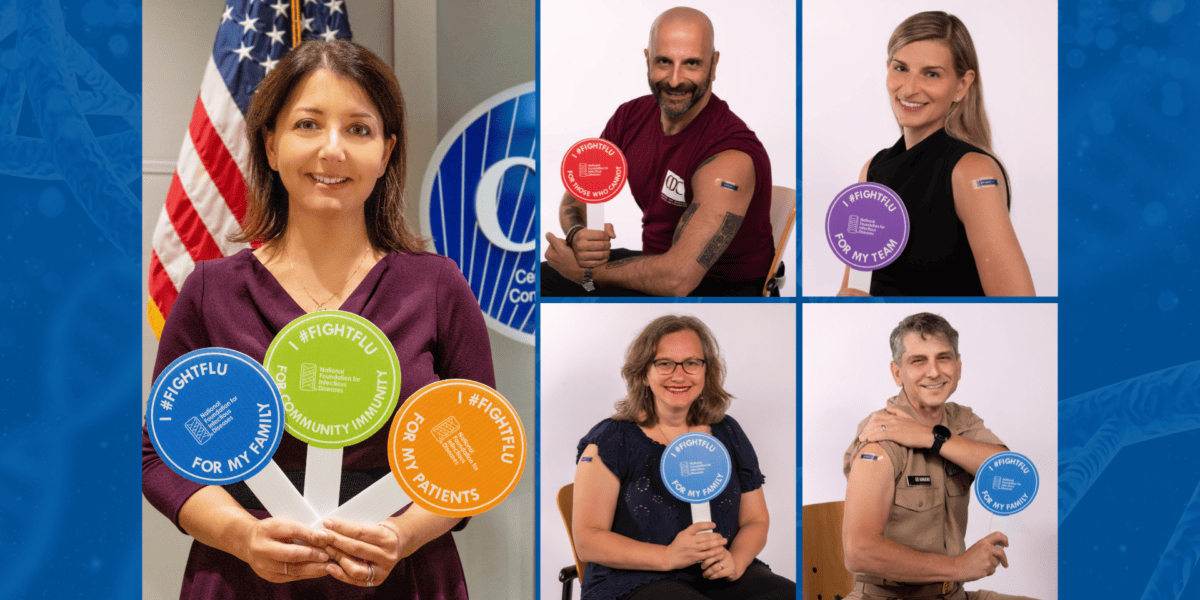
Leading by Example for a Healthier Fall and Winter
CDC guest post on the importance of disease prevention and leading by example to help protect against flu, COVID-19, and RSV
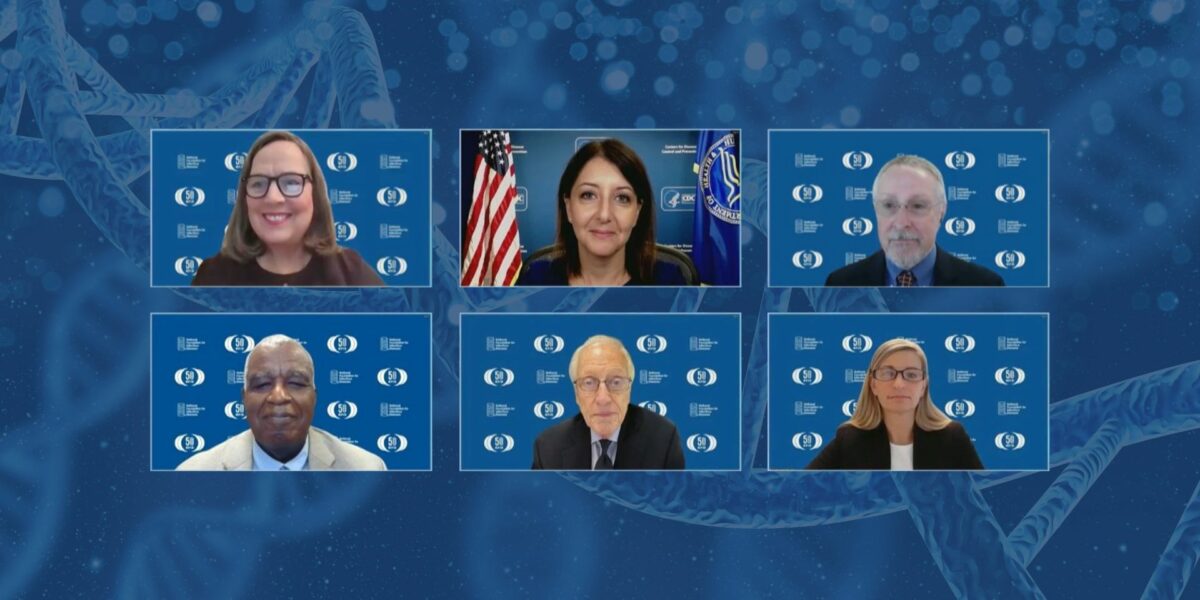
2023 NFID Annual News Conference: News Round-Up
Leading national experts at the 2023 National Foundation for Infectious Diseases (NFID) Annual News Conference: Preventing Disease this Fall and Winter emphasized the importance of vaccination to help prevent disease and protect public health …
